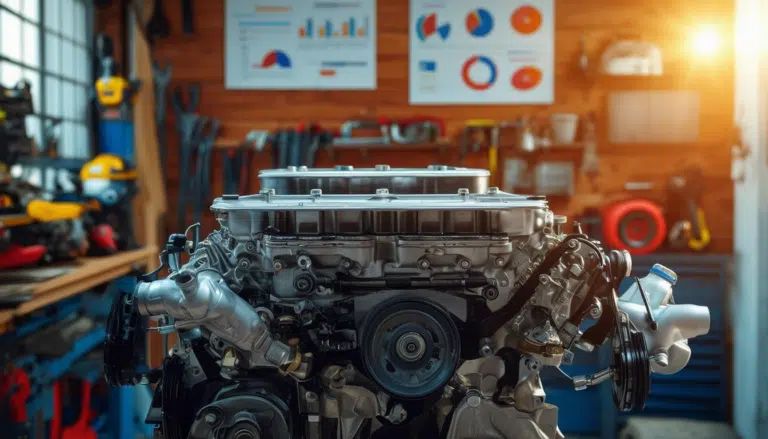Routine checks: how they affect your gas spending
Routine inspections of vehicles play a fundamental role in the fuel efficiency. Many drivers are unaware that proper preventive maintenance not only improves the car’s performance but can also lead to significant savings in fuel expenses. From checking the tire pressure to the condition of the air filters, each of these aspects directly influences how the vehicle consumes gasoline. With adequate attention to these details, the overall performance of the car can be optimized and, in turn, reduce the costs associated with fuel consumption.
Routine inspections are essential for the good condition of a vehicle and its fuel consumption performance. Maintaining a regular maintenance schedule can have a significant impact on fuel expenses, improving engine efficiency and reducing unnecessary costs on every trip. Below, the key aspects of maintenance that directly affect fuel consumption will be explored.
The Importance of Regular Inspections
Regular inspections allow for the detection of problems in the vehicle before they become serious failures. Components such as the air filter, spark plugs, and fuel injection system require constant attention. A car that does not receive adequate inspections may experience a noticeable drop in its efficiency, resulting in higher fuel consumption.
Tire Condition
The tire pressure plays a crucial role in fuel expenses. Deflated tires generate more rolling resistance, which forces the engine to work harder and consequently consumes more gasoline. Maintaining proper tire pressure not only increases the driver’s safety but also improves fuel efficiency.
Air and Fuel Filters
Having air and fuel filters in good condition is essential for optimizing engine performance. A clogged air filter can restrict airflow, resulting in an inefficient mix of fuel and air, thereby increasing fuel expenses. It is recommended to replace the air filter every 10,000 km to ensure optimal engine operation.
Driving Techniques and Maintenance
In addition to mechanical aspects, the way one drives also affects fuel consumption. Driving smoothly and avoiding sudden accelerations can reduce fuel expenses. Incorporating practices such as using cruise control on highways and maintaining constant speeds are habits that help optimize fuel usage.
The Hidden Costs of Poor Maintenance
Neglecting to perform regular maintenance can lead not only to increased fuel consumption but also to premature wear of various vehicle parts. This implies costly repairs that could have been avoided with a simple check-up. Thus, it can be understood that the long-term cost of not performing inspections is considerably higher than the expense of keeping the vehicle in good condition.
Practical Tips for Saving Gasoline
There are several methods to maximize fuel efficiency through proper maintenance. Considering the elements mentioned above and following a regular maintenance routine not only helps save on gasoline but also prolongs the vehicle’s lifespan. For more information on how to reduce consumption, additional resources offering practical tips for optimizing fuel expenses can be consulted.
Conclusion
Performing routine inspections is a crucial aspect in managing the fuel consumption of a vehicle. Attentive and regular maintenance can mean the difference between efficient fuel usage and unnecessary expenses. Adopting small habits can lead to significant savings and a better environmental impact.
Conducting routine inspections on vehicles is a fundamental aspect that plays a crucial role in fuel efficiency. Many drivers underestimate the importance of keeping their car in optimal condition, which can result in excessive fuel expenses. The key to avoiding these unnecessary costs lies in understanding how each component of the vehicle contributes to overall performance.
One of the main factors influencing gasoline consumption is the state of the air filters. A poorly functioning air filter can restrict airflow to the engine, forcing the system to inject a larger volume of fuel to maintain performance. This phenomenon can increase gasoline consumption by 5% to 10%, demonstrating the relevance of making periodic changes to this essential component.
The tire pressure is another crucial aspect not to be overlooked. Poorly inflated tires not only affect driving safety but also increase rolling resistance, which in turn raises gasoline consumption. Maintaining proper tire pressure can save up to 3% on fuel, a figure that, in the long run, translates to significant savings.
Finally, regular maintenance also helps identify problems before they become costly situations. For example, a regular diagnosis can detect failures in the fuel system or other components that, if not corrected, will lead to increased gasoline consumption. Therefore, establishing a routine of inspections not only results in financial savings but also represents a commitment to the environment by reducing the polluting emissions associated with excessive fuel consumption.


